Golden Retrievers are among the most popular dog breeds worldwide, known for their friendly disposition, intelligence, and loyalty. As active and large dogs, they have specific dietary needs to support their overall health and energy levels. This article provides a comprehensive guide on feeding Golden Retrievers, ensuring they receive the proper nutrients without becoming overweight.
1. Caloric Requirements of Golden Retrievers
Golden Retrievers are typically active and, therefore, have higher energy requirements. Here’s a basic breakdown based on life stages:
a. Puppies: Growing rapidly, they require about 55 to 60 calories per pound of body weight daily.
b. Active Adults: A regularly active adult Golden Retriever might need 30 to 40 calories per pound of body weight daily.
c. Sedentary or Older Dogs: Less active or senior Golden Retrievers will typically require around 25 to 30 calories per pound of body weight per day.
2. Importance of Quality Food
Golden Retrievers can be prone to certain health issues, such as hip dysplasia and certain cardiac problems. Feeding them a high-quality diet can assist in preventing or managing these health concerns. Always choose foods with real meat as the primary ingredient and avoid those with unnecessary fillers like corn or soy.
3. Factors Influencing Dietary Needs
a. Activity Levels: Goldens are naturally active dogs. Those who engage in more physical activities or playtime will require more food.
b. Health Issues: Diet can be a crucial factor in managing some health problems like allergies or joint issues.
c. Age: Puppies, adults, and senior Golden Retrievers all have varying dietary requirements, necessitating adjustments as they grow.
4. Monitoring Weight
Goldens love to eat and can be prone to obesity. It’s essential to monitor their weight regularly and adjust feeding amounts as required to prevent health complications associated with being overweight.
5. Estimating Monthly Feeding Costs
If you’re using a premium dog food priced at around $2 per pound, which provides about 400 calories per cup:
For an adult Golden Retriever weighing about 70 pounds and needing about 2,100 calories daily:
- Daily food requirement = 2,100 calories ÷ 400 calories/cup = 5.25 cups daily.
- Monthly food requirement = 5.25 cups x 30 = 157.5 cups.
- A 30-pound bag generally offers around 120 cups of food, so a Golden would need a bit more than one bag per month.
- Monthly cost = 1.3 bags x $60 (assuming $2 per pound) = approximately $78.
This estimation will vary based on brand, region, and specific dietary needs.
6. Snacks and Treats
While Golden Retrievers surely love their treats, moderation is crucial. Treats should be given in moderation and account for no more than 10% of their daily caloric intake.
7. Hydration
Ensuring that your Golden Retriever has access to fresh water is essential. Adequate hydration supports digestion, nutrient absorption, and overall health.
8. Supplements and Special Diets
Certain Golden Retrievers, particularly those with health issues, might benefit from supplements such as glucosamine for joint health or omega fatty acids for coat health. Always consult a vet before introducing any dietary supplements.
Our 5 Top Foods for Golden Retrievers
The diets were selected by our founder Justin Palmer, a certified canine nutrition expert, specifically with Golden Retrievers in mind:
| Food | Pros | Cons |
|---|---|---|
|
|
|
|
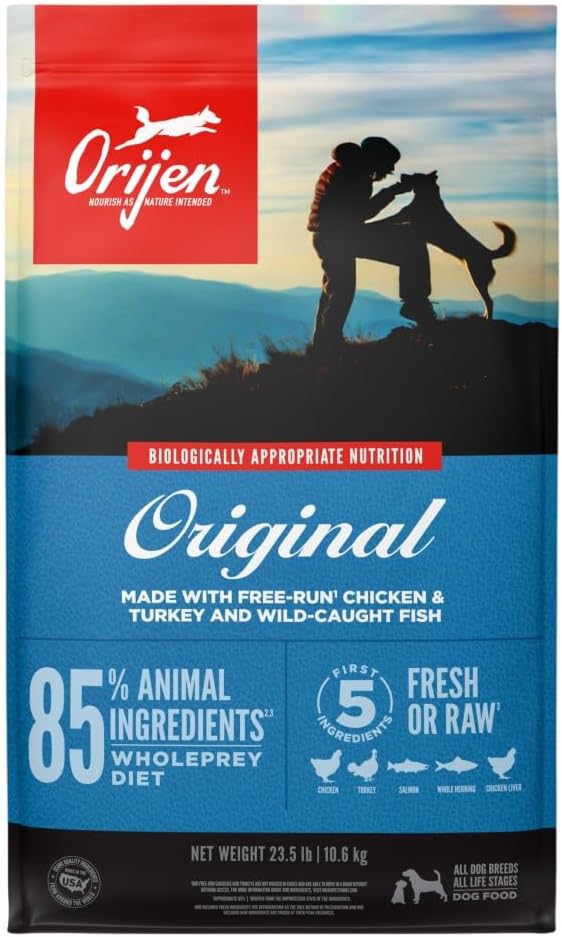
Check Today's Price on: |
|
|
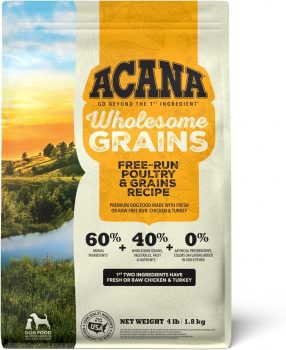
Check Today's Price on: |
|
|
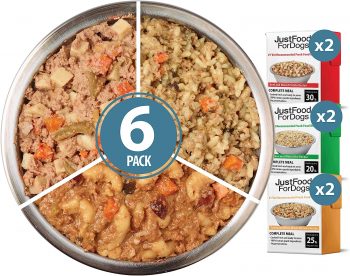
Check Today's Price on: |
|
|
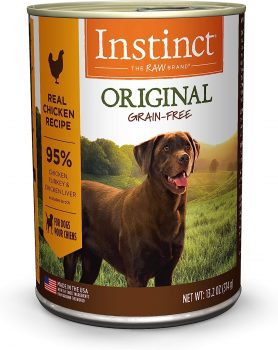
Check Today's Price on: |
|
|
Conclusion
Feeding your Golden Retriever a balanced and nutritious diet is key to their overall health and happiness. By understanding their unique dietary needs, monitoring their weight, and choosing high-quality food, you can ensure your Golden stays fit, energetic, and healthy throughout their life.
Frequently Asked Questions About Feeding a Golden Retriever
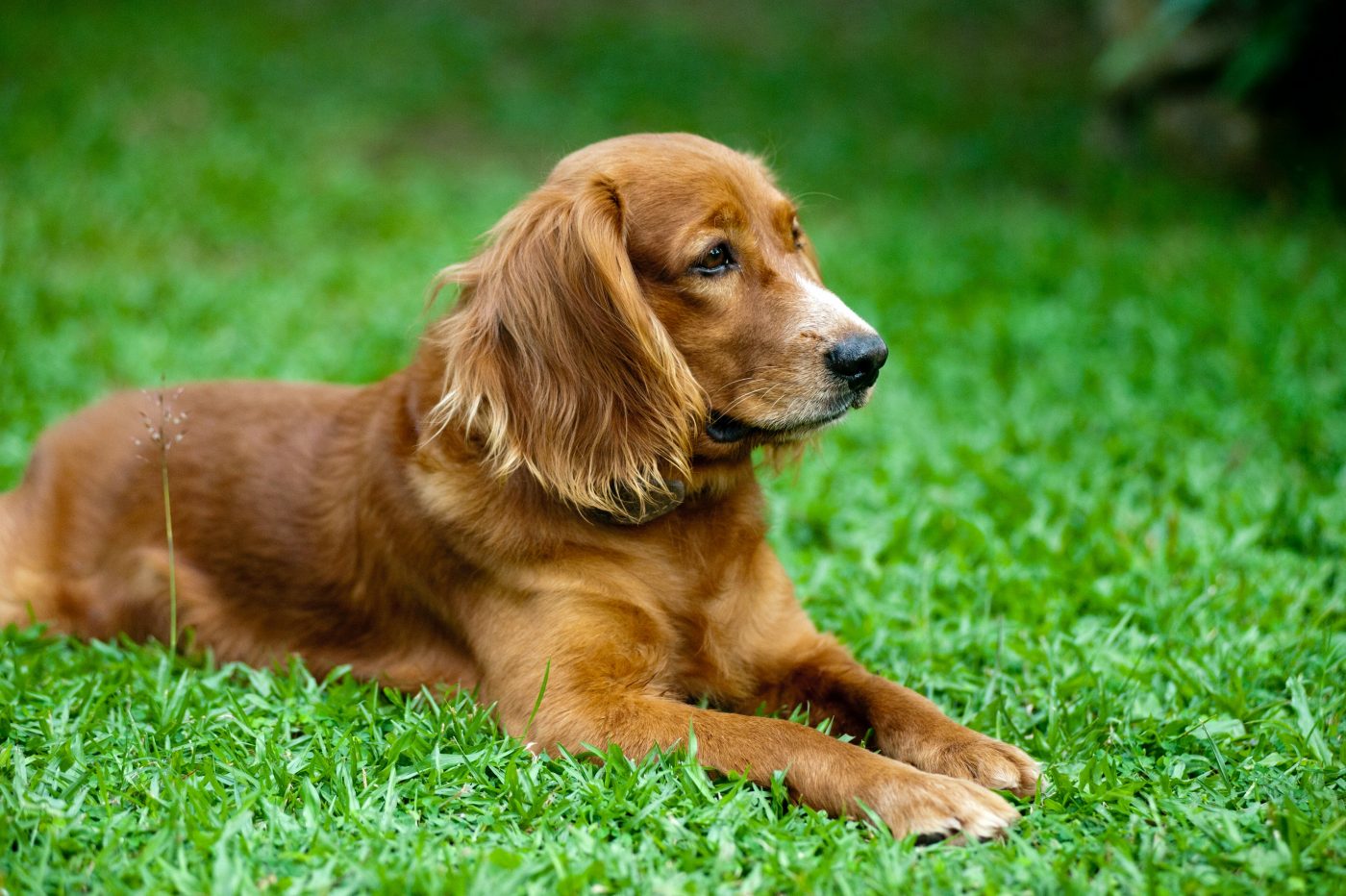
1. How many times a day should I feed my Golden Retriever puppy?
Golden Retriever puppies grow rapidly and have high energy needs. It’s recommended to feed them three to four times daily during their first six months, then reduce them to two to three meals as they approach adulthood.
2. Is it okay to give my Golden Retriever table scraps?
While occasional table scraps aren’t harmful, it’s essential to ensure the food is safe for dogs. Avoid feeding them chocolate, grapes, onions, and other toxic foods. Regularly giving table scraps can also lead to obesity and nutritional imbalance.
3. My Golden Retriever is gaining weight. What should I do?
Golden Retrievers are prone to obesity. If your dog is gaining weight, consider reducing portion sizes, providing more exercise, and eliminating excessive treats. Consulting a vet for specific dietary recommendations is also advisable.
4. Should I consider a grain-free diet for my Golden Retriever?
Grain-free diets can be suitable for dogs with grain allergies. However, it’s crucial to ensure they still receive a balanced diet. Always consult your veterinarian before making significant changes to their food.
5. How much water should my Golden Retriever drink daily?
A Golden Retriever should have continuous access to fresh water. On average, dogs should drink between 0.5 to 1 ounce of water per pound of body weight daily. Proper hydration is essential for digestion and overall health.
6. Are raw diets good for Golden Retrievers?
Raw diets have gained popularity, but they come with risks like bacterial contamination and potential nutrient imbalances. If considering a raw diet for your Golden Retriever, it’s essential to do thorough research and consult a veterinarian.
7. What should I do if my Golden Retriever is a picky eater?
Golden Retrievers typically love food, but if yours is picky, you can try different flavors or mix wet food with dry kibble. Rotating between high-quality brands or warming up the food might also help. If the issue persists, consult a vet.
8. Can I give my Golden Retriever bones to chew on?
While bones can be a good source of minerals and help with dental health, certain bones, like cooked ones, can splinter and pose a choking hazard. Opt for larger, raw bones and always supervise your dog while they’re chewing.
9. What treats are best for Golden Retrievers?
Opt for low-calorie, nutritious treats, especially if using them for training. Treats like carrots, apples (without seeds), or commercial treats with natural ingredients are good options. Always ensure treats make up a minimal portion of their daily caloric intake.
10. How can I ensure my Golden Retriever’s diet supports a healthy coat?
A balanced diet rich in omega-3 and omega-6 fatty acids can promote a shiny and healthy coat. Foods containing fish, flaxseed, or specific supplements can provide these essential fats. Ensure the primary diet is high-quality and consult your vet for specific recommendations.
 Check Today's Price on:
Check Today's Price on: Toledo, United States.
Toledo, United States.
